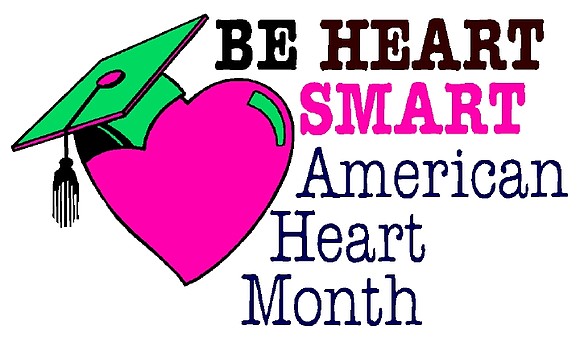While February is traditionally American Heart Month, we should be taking care of our heart every day— 365 days a year! As a community, African-Americans have higher rates of high blood pressure, high cholesterol, obesity and diabetes— the four major risk factors for heart disease. For this reason, preventing heart disease before it happens is critically important to the African-American community.
African-American women are at especially increased risk for heart disease:
•Cardiovascular disease kills nearly 50,000 African-American women annually
•Forty-nine percent of African-American women ages 20 and older have heart disease…
•…but only one in five African-American women believes she is personally at risk for heart disease.
Join the University of Maryland Medical Center team at Leap into Heart Health Day, Saturday, February 29, 2020 from 11 a.m. – 3 p.m. at Harlem Park Recreation Center for a day of free health services including blood pressure screening; quit smoking information; and BMI screening to learn more about how to prevent heart disease.
Nearly half of African-American men and half of African-American women have some form of cardiovascular disease that includes heart disease and stroke. But you can reduce your risk and improve your heart health by following the ABCS:
•A – Take aspirin if your healthcare provider recommends it
•B – Control your blood pressure
•C – Manage your cholesterol
•S – Don’t smoke
A: Take aspirin as directed by your health care provider. Ask your health care provider if aspirin can reduce your risk of having a heart attack or stroke. Be sure to tell your health care provider if you or your family members have ever had heart disease or a stroke.
B: Control your blood pressure. African-Americans are more likely to develop high blood pressure, which increases the risk of heart attack and stroke more than any other risk factor. Work with your doctor to develop goal blood pressure numbers, and a plan on keeping them down. Your health care provider may suggest strategies, such as:
•Eat a healthy diet. Eat more fruits and vegetables and choose foods low in sodium (the main ingredient found in salt).
•Get moving. Experts suggest doing a 10-minute walk 3 times a day, for at least 5 days a week. If that seems like a lot, start smaller – any physical activity is better than none.
•Take your medications. When diet and activity is not enough, your health care provider may give you medicine to help control your blood pressure. Ask your health care provider if you have any questions on how to take the medications, how much it may cost, and what side affects you might have. Tell your health care provider if the medicine makes you feel bad; there may better medications for you.
C: Manage your cholesterol. Cholesterol is a waxy substance produced by the liver and is found in animal-based foods. High cholesterol levels can cause blood vessel blockages that cause heart disease. Talk to your health care provider how to lower your cholesterol levels if they are too high. Diet changes and medications such as statins can save lives by preventing blockages in the blood vessels.
S: Don’t smoke. If you smoke, quitting smoking may be the best thing you can do for your heart health. It’s never too late to quit smoking. Call 1-800-QUIT-NOW today or visit smokefree.gov for free counseling and medications, or talk to your doctor.
What women need to know and do: Heart disease kills more American women than any other cause, and African-American women are especially at risk. Talk to your healthcare provider about your own personal risk of heart disease and the steps you can take to prevent it. Cardiologists at the University of Maryland Medical Center (UMMC) are dedicated to helping women prevent and manage heart disease.
And be sure to come by the Community Health Education Center on the UMMC Midtown campus any day for blood pressure screening and other health services that can help you take care of your heart!
Stanley S. Liu, M.D., FACC is an Assistant Professor at the University of Maryland School of Medicine, Department of Medicine, Division of Cardiovascular Medicine, and Associate Program Director of the Cardiovascular Disease Fellowship. His is also Director of Inpatient Consultative Services and/or Director of Cardiac Rehabilitation Services for the University of Maryland Medical Center.
Additional sources: Centers for Disease Control and Prevention, American Heart Association
